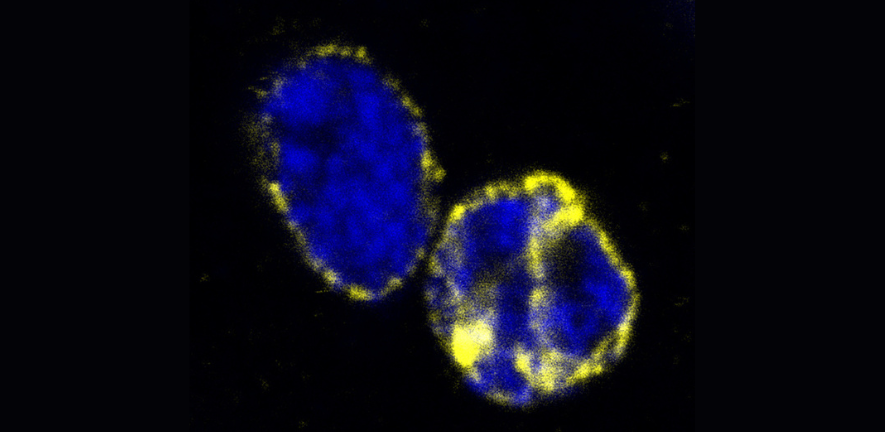
Submitted by Emily Rigby on Wed, 12/02/2025 - 14:53
A new study reveals novel links between transmembrane protein and stem cell nuclear properties.
Most tissues are renewed by stem cells that divide to produce correct cell types in response to environmental cues. A fundamental question is how stem cells themselves perceive their environment and are maintained over time to preserve healthy tissue function. In a new study published in the journal PLoS Genetics, the Kolahgar lab have identified novel connections between the conserved transmembrane adhesion protein Syndecan, nuclear properties and stem cell function.
Using the fruit fly Drosophila as a genetically tractable model to identify regulators of stem cell behaviour and survival in vivo, the group have revealed that Syndecan is required for maintenance of nuclear properties and cell function of intestinal and neural stem cells. In the midgut, Syndecan depletion in intestinal stem cells results in their loss from the tissue, impairing tissue renewal. At the cellular level, Syndecan depletion alters cell and nuclear shape, and causes nuclear lamina invaginations and DNA damage. In the developing brain, live imaging revealed that Syndecan depletion in neural stem cells results in nuclear envelope remodelling defects which arise upon cell division, affecting how fast these cells can divide.
Given Syndecan’s high conservation, the broad relationship between Syndecan and nuclear properties is likely to be upheld across organisms. This may be therapeutically relevant, especially as nuclear changes and genomic instability are hallmarks of cancer cells, and that Syndecan proteins are often deregulated in cancer and inflammatory diseases.
Reference:
Eldridge-Thomas BL, Bohere JG, Roubinet C, Barthelemy A, Samuels TJ, Teixeira FK, et al. (2025) The transmembrane protein Syndecan is required for stem cell survival and maintenance of their nuclear properties. PLoS Genet 21(2): e1011586. https://doi.org/10.1371/journal.pgen.1011586

